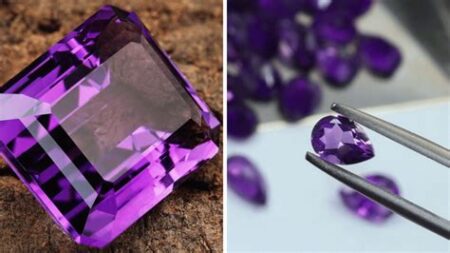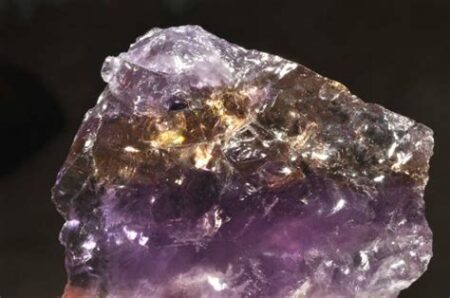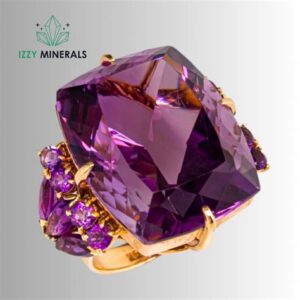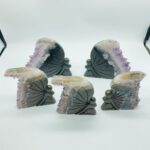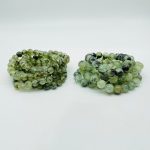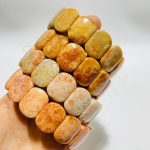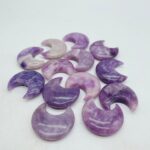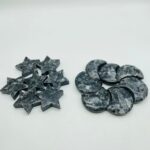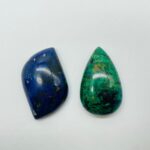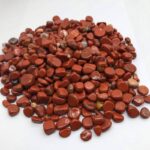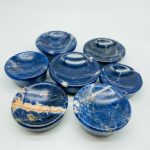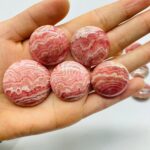The world of crystals is vast and fascinating, with an astonishing array of colors, shapes, and properties. While many crystals are relatively common, others are so rare that they are highly sought after by collectors and enthusiasts alike.

In this article, we delve into the realm of the rarest crystals, exploring their unique characteristics, where they are found, and why they are so valuable. From the ethereal beauty of red beryl to the enigmatic glow of painite, these extraordinary gems represent the pinnacle of crystal rarity.
Benitoite: The Blue Sapphire of California
Discovered in California’s San Benito County in 1907, benitoite is a rare barium titanium silicate mineral renowned for its intense blue color, rivaling that of the finest sapphires. It is exceptionally rare, with only a few known deposits worldwide. Benitoite’s rarity and striking beauty make it a highly prized gem, commanding a premium in the gemstone market.
Tanzanite: From Tanzania, with Love
Tanzanite, a captivating violet-blue variety of zoisite, was first discovered in the Merelani Hills of Tanzania in 1967. Its vibrant color and exceptional clarity make it a popular choice for jewelry enthusiasts. Tanzanite is relatively rare, with limited deposits confined to a small area in Tanzania. Due to its growing popularity and limited supply, tanzanite’s value has steadily appreciated in recent years.
Red Beryl: A Fiery Rarity
Red beryl, a captivating variety of beryllium aluminum silicate, is the rarest of all beryl gemstones. Its intense red color, reminiscent of fiery embers, sets it apart from the more common green and blue varieties. First discovered in Utah in 1904, red beryl has since been found in several other locations, including Madagascar and Russia. However, its extreme rarity and exceptional beauty make it a coveted gem among collectors.
Painite: The Enigma of Myanmar
Painite, a rare calcium zirconium borate mineral, is the undisputed champion of rarity in the crystal world. Discovered in Myanmar in 1956, only a handful of painite crystals have been found to date, making it one of the most sought-after and expensive gemstones. Its deep reddish-brown color and exceptional brilliance have captivated gem collectors and mineralogists alike.
Jeremejevite: A Russian Wonder
Jeremejevite, a rare aluminum borate mineral, was first discovered in Russia in 1883. Its distinctive pale blue or lilac color and high refractive index make it a highly desirable gem. Jeremejevite’s rarity and delicate nature render it challenging to cut and polish, adding to its value and exclusivity.
Serendibite: A Sri Lankan Gem
Serendibite, a rare calcium magnesium aluminum borosilicate mineral, was first discovered in Sri Lanka in 1902. Its intense blue color and exceptional brilliance make it a highly sought-after gemstone. Serendibite’s extreme rarity, with only a few hundred crystals known to exist, has made it a highly prized collector’s item.
Sugilite: A Volcanic Treasure
Sugilite, a manganese lithium sodium silicate mineral, was first discovered in Japan in 1944. Its vibrant purple color and unique crystalline structure set it apart from other gemstones. Sugilite is exceptionally rare, with only a few known deposits worldwide. Its popularity and rarity have driven its value to considerable heights in recent years.
Diaphorite: A Collector’s Dream
Diaphorite, a rare lead-bearing carbonate mineral, was first discovered in Namibia in 1969. Its striking emerald-green color and exceptional brilliance make it a highly prized gem. Diaphorite’s extreme rarity, with only a handful of crystals known to exist, has made it a coveted collector’s item.
Priderite: A Deep-Sea Delight
Priderite, a rare calcium titanium silicate mineral, was first discovered in a deep-sea hydrothermal vent in 1987. Its unique olive-green color and exceptional hardness make it a highly unusual gem. Priderite’s extreme rarity and challenging accessibility have made it a highly sought-after collector’s item.
Bixbyite: A Crimson Rarity
Bixbyite, a rare iron manganese oxide mineral, was first discovered in Utah in 1914. Its distinctive crimson-red color and exceptional hardness make it a highly prized gem. Bixbyite’s extreme rarity, with only a few known deposits worldwide, has made it a highly sought-after collector’s item.
Transformation through Crystalline Innovation
The world of crystals holds immense potential for groundbreaking applications. By harnessing their unique properties, we can unlock new technologies and transform various industries. From the development of novel optical materials to the advancement of medical diagnostics, the possibilities are limitless.
To foster this innovation, we must continue to explore the depths of crystal science, seeking out new and undiscovered species. Collaboration between researchers, gem collectors, and industry leaders can accelerate the development of innovative crystal-based solutions.
Table 1: Rarest Crystals and Their Characteristics
| Crystal | Color | Locality | Hardness | Cleavage | Luster |
|---|---|---|---|---|---|
| Benitoite | Blue | California, USA | 6.5 | Perfect | Vitreous |
| Tanzanite | Violet-blue | Tanzania | 6.5 | Fair | Vitreous |
| Red Beryl | Red | Utah, USA; Madagascar | 7.5 | Poor | Vitreous |
| Painite | Reddish-brown | Myanmar | 8 | Poor | Vitreous |
| Jeremejevite | Blue, lilac | Russia | 7.5 | Poor | Vitreous |
| Serendibite | Blue | Sri Lanka | 7 | Perfect | Vitreous |
| Sugilite | Purple | Japan | 6 | Perfect | Vitreous |
| Diaphorite | Emerald-green | Namibia | 5.5 | Perfect | Vitreous |
| Priderite | Olive-green | Deep-sea hydrothermal vent | 8 | Poor | Vitreous |
| Bixbyite | Crimson-red | Utah, USA | 6.5 | Poor | Metallic |
Table 2: Rarest Crystals and Their Occurrence
| Crystal | Countries of Origin | Number of Known Deposits |
|---|---|---|
| Benitoite | United States | 1 |
| Tanzanite | Tanzania | 1 |
| Red Beryl | United States, Madagascar, Russia | 3 |
| Painite | Myanmar | 2 |
| Jeremejevite | Russia | 2 |
| Serendibite | Sri Lanka | 1 |
| Sugilite | Japan, South Africa | 2 |
| Diaphorite | Namibia | 1 |
| Priderite | Deep-sea hydrothermal vents | 1 |
| Bixbyite | United States | 1 |
Table 3: Rarest Crystals and Their Value (per Carat)
| Crystal | Average Price Range |
|---|---|
| Benitoite | $5,000 – $20,000 |
| Tanzanite | $1,000 – $5,000 |
| Red Beryl | $10,000 – $50,000 |
| Painite | $50,000 – $250,000 |
| Jeremejevite | $2,000 – $10,000 |
| Serendibite | $10,000 – $50,000 |
| Sugilite | $2,000 – $10,000 |
| Diaphorite | $5,000 – $20,000 |
| Priderite | $10,000 – $50,000 |
| Bixbyite | $5,000 – $20,000 |
Table 4: Rarest Crystals and Their Applications
| Crystal | Potential Applications |
|---|---|
| Benitoite | Gemstones, optical materials |
| Tanzanite | Gemstones, lasers |
| Red Beryl | Gemstones, scientific research |
| Painite | Gemstones, scientific research |
| Jeremejevite | Gemstones, optical materials |
| Serendibite | Gemstones, scientific research |
| Sugilite | Gemstones, spiritual healing |
| Diaphorite | Gemstones |
| Priderite | Gemstones, scientific research |
| Bixbyite | Gemstones, scientific research |
Conclusion
The world of crystals is a captivating realm of beauty, rarity, and scientific intrigue. The rarest crystals, such as benitoite, tanzanite, and painite, represent the pinnacle of this extraordinary kingdom. Their unique properties and exceptional rarity make them highly sought after by collectors, enthusiasts, and scientists alike.
As we continue to explore the depths of crystal science, we unlock new possibilities for innovation and transformative applications. By embracing the power of crystals, we can push the boundaries of technology, explore the depths of the Earth, and enhance our understanding of the world around us.

